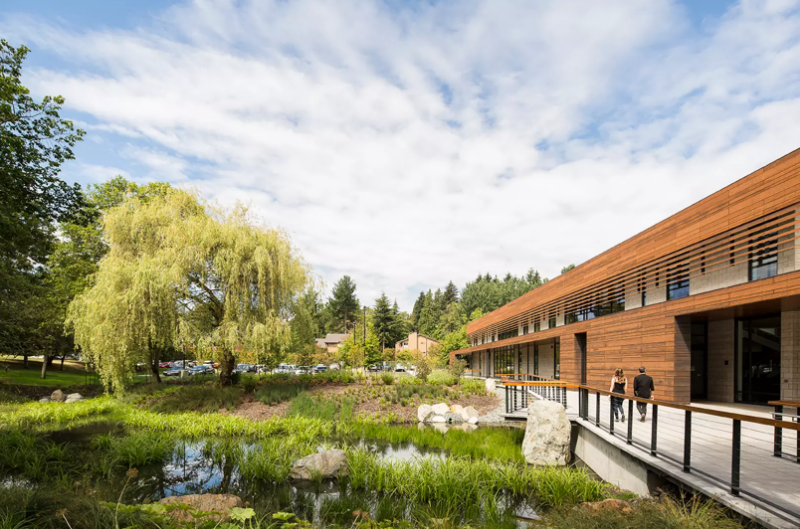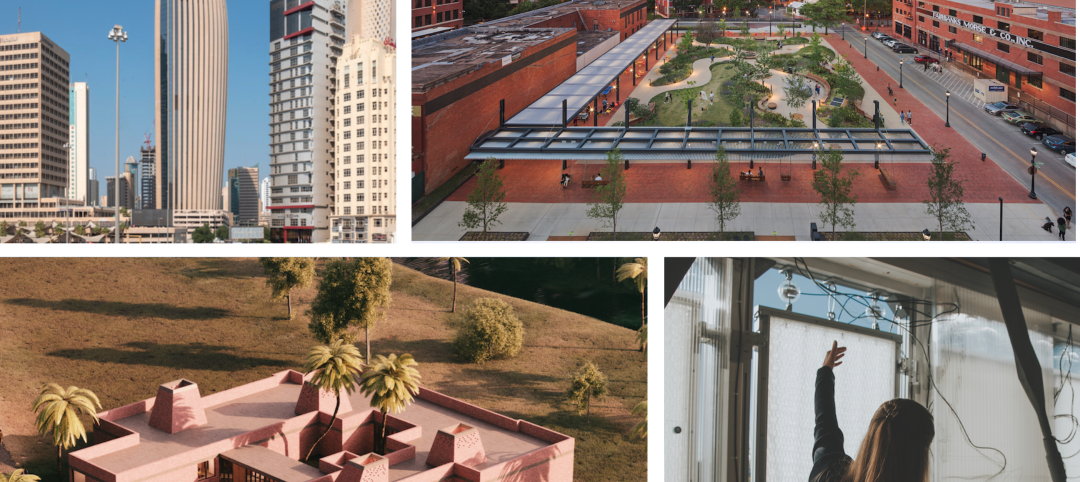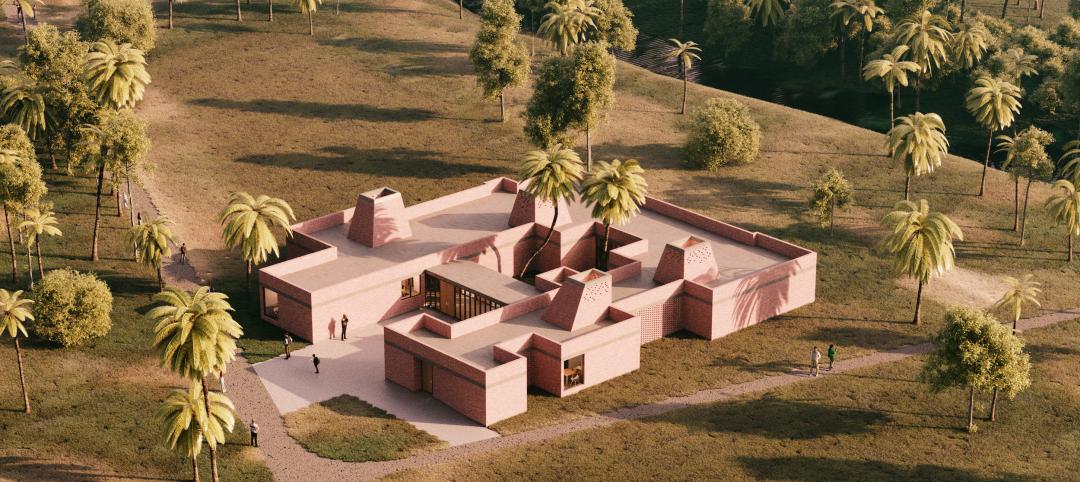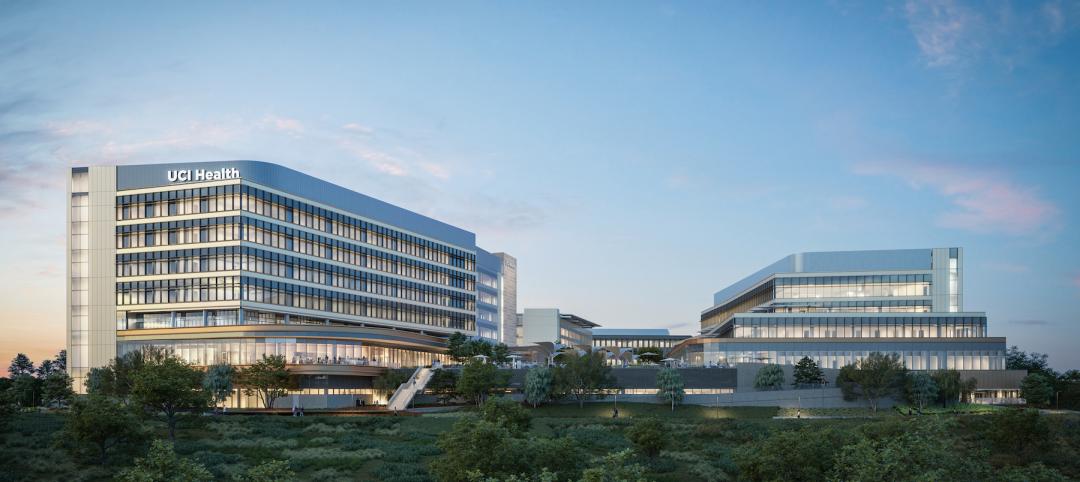The American Institute of Architects (AIA) Academy of Architecture for Health (AAH) has selected the recipients of the AIA Healthcare Design Awards program. The award program showcases the best healthcare building design and healthcare design-oriented research. Projects exhibit conceptual strengths that solve aesthetic, civic, urban, and social concerns as well as the requisite functional and sustainability concerns of a hospital.
Recipients were selected in four different categories:
Category A - Built: Less than $25 million (construction cost)
Category B - Built: More than $25 million (construction cost)
Category C - Renovations/Remodeled: Primarily built within existing hospital or clinical space
Category D - Unbuilt: must be commissioned for compensation by a client with the authority and intention to build
Category A
Harvey Pediatric Clinic; Rogers, Arkansas
Marlon Blackwell Architects
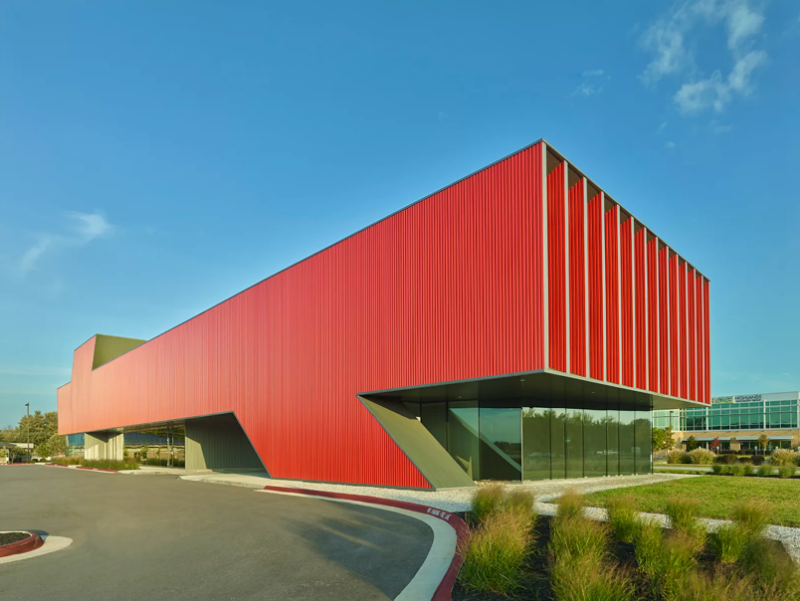 Photo: Timothy Hursley.
Photo: Timothy Hursley.
Situated in a fast-developing area, the Harvey Pediatric Clinic is an abstract figure set in contrast to the excess of materials, weak forms, and beige tones that make up the everyday suburban landscape that surrounds the building. The cayenne-color metal panel wraps the entire south side of the building, providing a strong identity for the practice. Patients enter the building, pass through and ascend a stair that is washed in blue light from the skylight above. Sixteen exam rooms are organized along a simple, clear circulation path defined by several skylights that bring natural light deep into the building.
Neighborcare Health, Meridian Center for Health; Seattle
NBBJ
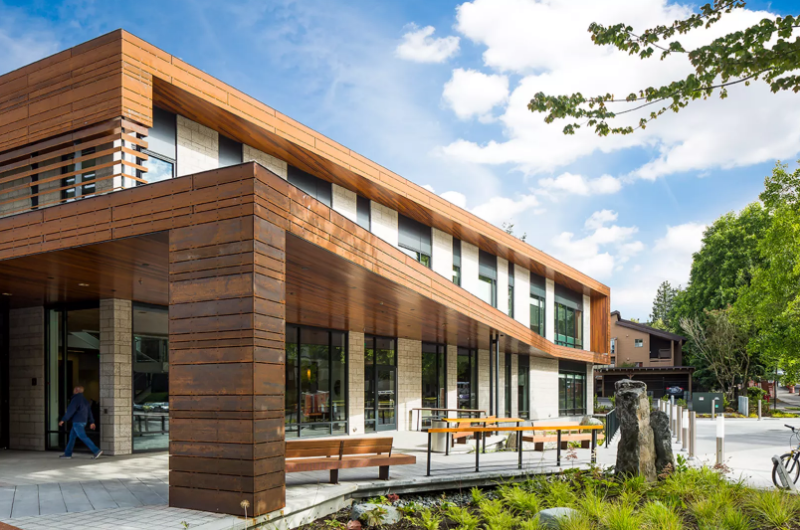 Photo: NBBJ/Sean Airhart.
Photo: NBBJ/Sean Airhart.
Partially funded by a federal grant, the Meridian Center for Health is a first of its kind: an integrated, one-stop model for health treatment and prevention for underserved Seattle-area residents. Uniting three health organizations under the same roof, the center provides low- to no-cost medical, dental, and mental health services for adults and children. Design elements include an open floor plan, a dramatic feature stair in the lobby, and a range of team and community spaces that remain available for neighborhood organizations after hours. The Center is tracking to receive LEED Gold certification.
Category B
Mercy Virtual Care Center; Chesterfield, Missouri
FORUM STUDIO
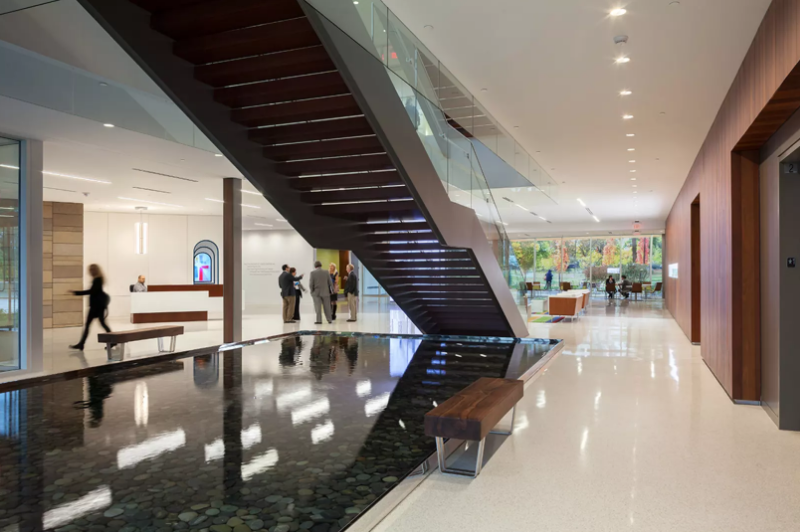 Photo: Sam Fentress.
Photo: Sam Fentress.
The Virtual Care Center exemplifies this Catholic health system’s bold commitment to the future of healthcare. This first-of-its-kind facility advances Mercy’s mission of transformative care while dramatically improving outcomes through improved patient management. The design blends the built with nature through an authentic use of materials and space. A palette of stone, glass, precast and wood coupled with flexible floor plates create an environment that fosters innovation, collaboration and patient centric care. The Virtual Care Center, the genesis of a national consortium of virtual providers, pioneers a new model of care.
UC San Diego Jacobs Medical Center; La Jolla, California
Cannon Design
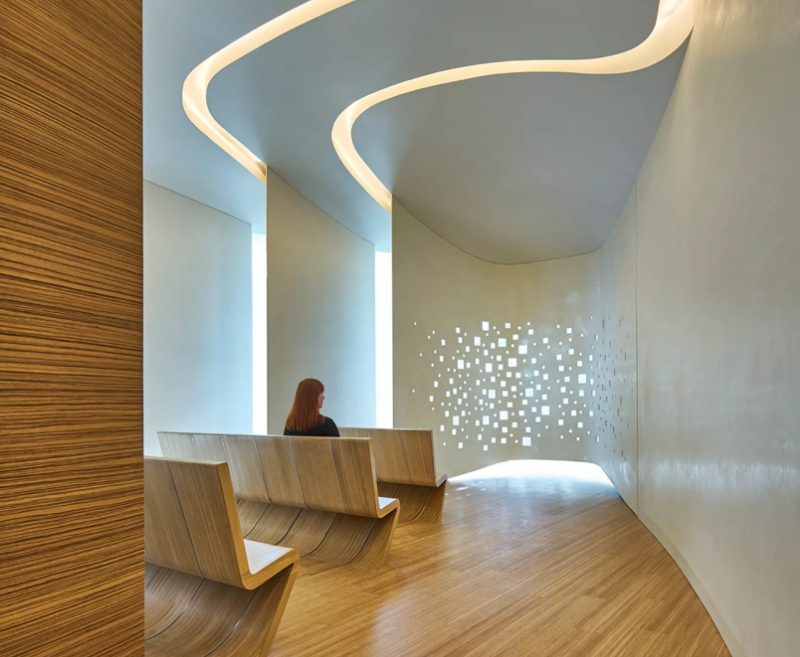 Photo: Christopher Barrett.
Photo: Christopher Barrett.
Reflective of UC San Diego’s vision toward the future intersections between technology and medicine, Jacobs Medical Center is designed as three hospitals in one with focus on women’s and children’s, cancer and specialty surgery. The tower is the cornerstone of a new campus identity focused on the future of health, pairing cutting-edge, modern medicine with best-in-class patient experience.
Category C
Advocate Lutheran General Hospital Cardiac Catheterization Suite; Park Ridge, Illinois
Philips Design and Anderson Mikos Architects
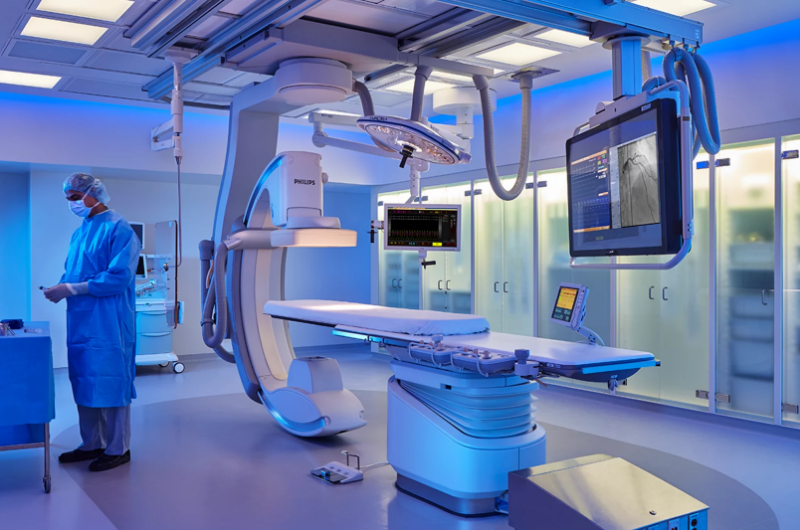 Photo: Craig Dugan Photography
Photo: Craig Dugan Photography
The design team worked closely with key stakeholders to achieve Advocate Health Care Heart Institute’s goal of improved customer experience, safety, and outcomes. The new cardiac catheterization suite improves the way people receive care through the complete transformation of patient, family and staff experiences. The resulting optimized flow and journey includes a transradial recovery lounge, labs that inspire confidence while improving safety, and a first-of-its-kind prep/recovery bay solution that enables a less stressful recuperation personalized for each patient. The Advocate Experience has been redefined through the service and spatial design transformation for this Suite.
Bayshore Dental; Whitefish Bay, Wisconsin
Johnsen Schmaling Architects
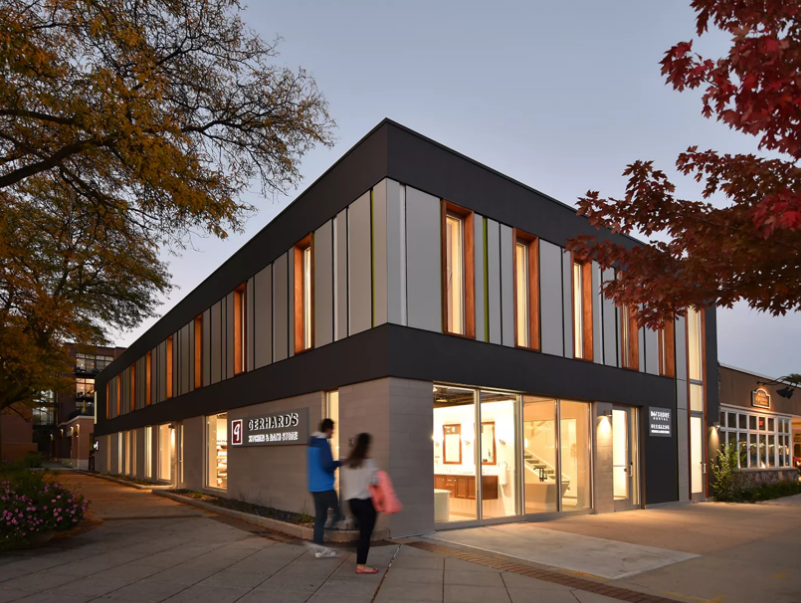 Photo: John J. Macaulay.
Photo: John J. Macaulay.
This project is the ambitious reinvention of an abandoned building and its transformation into a state-of-the-art clinic for a young dentist and her small staff. The project’s rigorous architecture and meticulous details echo the ethos of the flawless efficiency, uncompromising precision and exacting purity at the center of the innovative dentistry performed here. Procedural flow strategies informed the clinic’s overall layout. A continuous ceiling plane leads patients from the light-filled reception to the individual operatories, each marked by green vertical panels and light strips that animate the clinic’s central corridor. White oak cabinetry and green accents complement the intentionally restrained interior palette, all contributing to a deliberately serene ambience intended to appease a sometimes-apprehensive clientele.
Category D
Ambulatory Surgical Facility; Kyabirwa, Uganda
Kliment Halsband Architects
 Rendering: Kliment Halsband Architects.
Rendering: Kliment Halsband Architects.
This independent, off-the-grid ambulatory surgical facility is a replicable prototype for the five billion people in the world who lack access to safe or affordable surgery. The building is composed of three functional elements: a reception pavilion with offices grouped around a family waiting area courtyard, an intermediate pavilion for pre-op and post-op activities, and a sterile pavilion with two operating rooms and related support spaces. These elements are sheltered under a solar panel shade structure, inspired by the banana plants on the site.
Related Stories
Design Innovation Report | Apr 27, 2023
BD+C's 2023 Design Innovation Report
Building Design+Construction’s Design Innovation Report presents projects, spaces, and initiatives—and the AEC professionals behind them—that push the boundaries of building design. This year, we feature four novel projects and one building science innovation.
Sustainability | Apr 20, 2023
13 trends, technologies, and strategies to expect in 2023
Biophilic design, microgrids, and decarbonization—these are three of the trends, technologies, and strategies IMEG’s market and service leaders believe are poised to have a growing impact on the built environment.
Design Innovation Report | Apr 19, 2023
HDR uses artificial intelligence tools to help design a vital health clinic in India
Architects from HDR worked pro bono with iKure, a technology-centric healthcare provider, to build a healthcare clinic in rural India.
Healthcare Facilities | Apr 17, 2023
UC Irvine takes sustainability to new level with all-electric medical center
The University of California at Irvine (UCI) has a track record for sustainability. Its under-construction UCI Medical Center is designed, positioned, and built to preserve the nearby San Joaquin Marsh Reserve, to reduce the facility’s solar gain by 85%, and to be the first medical center in the country to operate on an all-electric central plant.
Healthcare Facilities | Apr 13, 2023
Healthcare construction costs for 2023
Data from Gordian breaks down the average cost per square foot for a three-story hospital across 10 U.S. cities.
Healthcare Facilities | Apr 13, 2023
Urgent care facilities: Intentional design for mental and behavioral healthcare
The emergency department (ED) is the de-facto front door for behavior health crises, and yet these departments are understaffed, overwhelmed, and ill-equipped to navigate the layered complexities of highly demanding physical and behavioral health needs.
Urban Planning | Apr 12, 2023
Watch: Trends in urban design for 2023, with James Corner Field Operations
Isabel Castilla, a Principal Designer with the landscape architecture firm James Corner Field Operations, discusses recent changes in clients' priorities about urban design, with a focus on her firm's recent projects.
Market Data | Apr 11, 2023
Construction crane count reaches all-time high in Q1 2023
Toronto, Seattle, Los Angeles, and Denver top the list of U.S/Canadian cities with the greatest number of fixed cranes on construction sites, according to Rider Levett Bucknall's RLB Crane Index for North America for Q1 2023.
Contractors | Apr 10, 2023
What makes prefabrication work? Factors every construction project should consider
There are many factors requiring careful consideration when determining whether a project is a good fit for prefabrication. JE Dunn’s Brian Burkett breaks down the most important considerations.
Architects | Apr 6, 2023
New tool from Perkins&Will will make public health data more accessible to designers and architects
Called PRECEDE, the dashboard is an open-source tool developed by Perkins&Will that draws on federal data to identify and assess community health priorities within the U.S. by location. The firm was recently awarded a $30,000 ASID Foundation Grant to enhance the tool.


